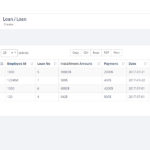The 12 Pre-Requisites of PCI DSS Compliance
PCI DSS (payment card industry data security standard) are worldwide recognized standards and criteria for the businesses, organizations, and firms operating online and handling users’ data. Now a day every business is an online business. Handling online sales means payment card (debit or credit) holders’ data is needed to be processed as they check out. Organizations involved in handling, processing, and storing the data coming from payment card transactions need to be accredited through PCI DSS compliance. This article aims at providing handsome resources on PCI compliance and its requirements.
The 12 pre-requisites of PCI DSS compliance
Below are the 12 requirements necessary to meet for payment card industry data security standards compliance. By fulfilling these 12 points organizations make themselves capable of PCI DSS certifications.
The firewall protection
Internet firewalls are those restrictions put on your access points that block and restrict unknown and foreign users from logging in illegally to breach or eavesdrop on the data. A firewall is in other terms is the defense wall against hackers, data theft, or any type of external damage to data assets. The first requirement is to have and maintain a firewall around data assets and IT infrastructure to make sure users’ data is safe.
Password protection criteria
Point of sales, modems and third-party services often come with password protection measures but store those passwords as well. So to assess and block these types of vulnerabilities where passwords can be approached and used without authorization, organizations have to take robust actions. Payment card holder’s compliance makes sure either an organization has achieved and set password protection criteria to meet security standards.
Card holders’ data protection
PCI DSS demands an accredited company to ensure that cardholders’ data is protected in their systems. A proper and well-logged encrypted system is needed to secure the sensitive form of data coming into the systems and this is why PCI DSS makes sure these measures for an online business.
End to end encryption of transferred data
The data transfer while doing online sales, purchases, and transactions need two folds of data protection while conveying. First, the pathway is secured from which data is flowing and secondly the storage where data is being stored is well encoded.

Image by Unsplash
Anti-virus software installation
These security compliance compel an organization to install and run safe anti-virus data to keep any vulnerability and malware at bay. For the best data protection organizations need to purchase and maintain strong anti-virus softwares.
Secure maintenance and installation of softwares
All the data handling softwares; anti-virus, firewall, and other ERPs need yearly or monthly updates. PCI DSS compliance validates that this softwares are well updated and maintained.
Delimited data access
Data access to cardholders’ data must be a serious action for online businesses. Third parties, stakeholders and other employees must and should not have access to users’ card data and their keys. To make sure a well-maintained internal audit and checks are needed, said by PCI DSS.
Customer IDs and ID encryption
Against every online purchase and sale users have to put their data in form of an ID and this ID becomes their identity in their next purchase. These IDs contain sensitive information and need serious precautions while handling and processing their data. PCI DSS body asks online businesses to make sure these IDs are unique to every user and are well encoded.

Image by Freepik
Delimited security access
The maintenance of unique IDs for the limited or no access of any foreigner to users’ data is one of the most demanded security measures issued by PCI DSS.
Access logs maintenance
The users’ data is kept secure in manual formats as well, so these manual logs must be kept under high and foolproof security to avoid any breach.
Look for loopholes and vulnerabilities
Internal audit and vulnerabilities identification are needed for online businesses as they approach online users’ data and process it to checkout their payments. Vulnerability testing from internal and external ends can minimize the threats posed to sensitive card data.
Documentation criteria
PCI DSS demands an organization handling cardholders’ data to document the access points, processes, and people to be registered for secure access to cardholders’ data. Even the logs and robots accessing the cardholders’ data needs to be registered and audited for transparency and PCI DSS compliance.
Cover Photo by Mark OFlynn on Unsplash
















